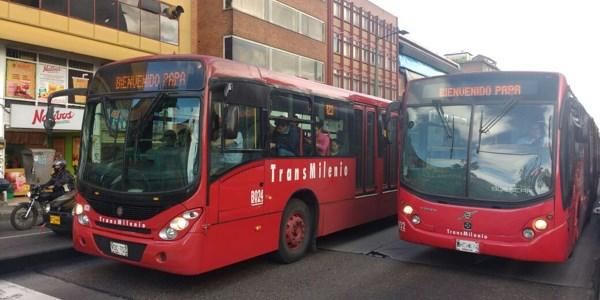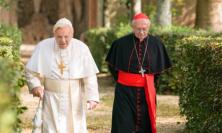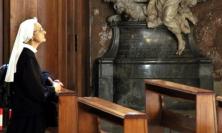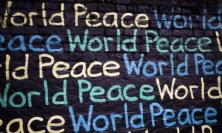This month, Pope Francis will visit Colombia. Peter Cousins surveys the hopes and expectations of the papal visit to a country whose recent history has been violent and tumultuous but whose current climate provides the perfect environment for the themes that have characterised Francis’ papacy to flourish.
Nine months after Colombia witnessed the signing of a long-awaited peace deal between its government and the Revolutionary Armed Forces of Colombia (FARC) guerrillas, which brought to an end the western hemisphere’s longest armed conflict, the country is preparing for another much-anticipated event: the visit of Pope Francis. From 6-11 September 2017, during Colombia’s annual ‘Week for Peace’, the Bishop of Rome will return to the continent of his birth, in a four-city trip that that will see stops in the capital Bogotá, as well as Villavicencio, Medellín and Cartagena de Indias.
In this article, I aim to capture expectations of the papal visit and consider its significance for three groups – the Colombian Jesuits, the Catholic Church in Colombia and Colombian society in general. Francis’s ministry has been characterised by its emphasis on mercy and encounter. We will see that Colombia is an ideal site for these messages that are close to his heart to take root.
What is significant about this visit for the Jesuits of Colombia?
This is a papacy of firsts: the first Latin American pope, and the first to have been called from the Society of Jesus. Such a combination, therefore, is of particular significance for the Jesuits of this country, as for them, it is not only a matter of the leader of the Church visiting, but one of their number.
According to Fr John Montoya SJ of the Bogotá-based Jesuit conflict research institute CINEP, ‘the Jesuits share with the Church the joy of our beloved Pope Francis’ visit.’[i] Some contemporary Colombian Jesuits are already in the public eye, for example Fr Francisco de Roux, who is widely respected for his years of peacebuilding work. The Jesuits’ commitment to peace and reconciliation may be highlighted and strengthened as a result of the pope’s trip. But Montoya further remarks that, ‘[the pope’s] language, his way of reading the world, the Church’s role in the world, is very Jesuitical … It was in the Society of Jesus that Francis was forged.’ In many ways, it will be an opportunity for Ignatian spirituality to go on public display in Colombia.
The pope will also surely seek to highlight the legacy of two of Colombia’s historical Jesuits: Fr Alonso de Sandoval and, in particular, St Peter Claver. Both are known for their ministry to African slaves in the Caribbean port of Cartagena in the 17th century. Facing horrendous conditions on board, Fr Sandoval entered the slave ships upon their arrival and also ministered to vassals once on land, while Claver, said to have baptised 300,000 Africans, spoke of them as ‘human treasures’ and was looked down upon by the local colonial authorities during his lifetime for his work and advocacy in their favour. The two embodied and performed the corporal and spiritual works of mercy that lie close to their modern-day Argentinian confrere’s heart.
We can notice especially the similar ways in which Peter Claver and Pope Francis were shaped by their Ignatian formation. The ‘Slave of the slaves forever’ is known to have said of the Africans to whom he ministered, ‘We must speak to them with our hands before we speak to them with our lips’; while the Servant of the Servants of God, in his memorable ‘field hospital’ metaphor, declared, ‘It is useless to ask a seriously injured person if he has high cholesterol and about the level of his blood sugars! You have to heal his wounds. Then we can talk about everything else.’
Nowadays Cartagena, a UNESCO World Heritage site, is a must-see for tourists to Colombia, with its immaculately preserved Spanish architecture, but it remains a city of dramatic material inequality. It is also the fourth and final stop on the pope’s tour of the country, on 10 September – the day after St Peter Claver’s feast, also celebrated as National Human Rights Day. Francis will not wish to pass over a ready-made opportunity to promote these two Jesuits as exemplary figures for present day Colombian society.
What is significant about this visit for the Church in Colombia?
In a message released by Medellín-based media, Pope Francis himself declares that his intention in travelling to Colombia is to be a ‘missionary of mercy and peace’ and to, ‘confess together our faith in God and share a fundamental truth in our lives, that God loves us very much – beyond our merits.’ Above all else, then, the pope is coming to proclaim the timeless word of God for our days and in our particular circumstances.
The overall theme for the visit is ‘Let us Take the First Step’. Additionally, a specific focus has been assigned for each of the four cities the pope will visit, and each of those sub-themes speaks to the Colombian Church’s priorities as she sees them at present, as well as reflecting some of Francis’s universal concerns. His time in Bogotá will be a celebration of life. In Villavicencio, where victims and reconciliation will take centre stage, the pope will beatify Bishop Jesús Emilio Jaramillo Monsalve of Arauca and Father Pedro Ramírez Ramos of Armero, victims of conflict-related violence in 1989 and 1948 respectively. In Medellín, religious life will be highlighted; while Cartagena will, appropriately, see a stress on human rights and the poor.[ii]
These emphases have been crafted with a delicate balancing act in mind; Alejandra Martínez Roa, Secretary of the Observatory of the Archdiocese of Bogotá for the New Evangelisation, told me that there was considerable concern amongst both the government and bishops at the possibility of the visit becoming politicised.[iii] Indeed, the outgoing President of the Colombian Bishops’ Conference acknowledged before his colleagues in the episcopate that the levels of polarisation currently affecting the country generally, and concerning the peace process in particular, were reflected amongst themselves, too. In this broad church, it will be hoped that the pope’s agenda not only contains something for everyone, but that Francis will find a way of focusing Catholics on the essentials of the faith.
Nobody in the Church will complain if the months and years following the papal visit see an ‘awakening of vocations’ to the priesthood, as Martínez points out was the case after Pope John Paul II’s visit 31 years ago. But the pope’s vision is for a Church that exists on the streets and on the margins, and he is not afraid to wade into the political arena.[iv] In this sense, a proposed visit to the city of Quibdó, the remote capital of the north-western Chocó department in the conflict-ridden Pacific region, would have enabled him to highlight explicitly the pastoral focus of the bishops of the Pacific dioceses. Like Francis, they are known for their proximity to the people – largely Afro-Colombians and also indigenous populations – and on occasion speak as a bloc within the Colombian Bishops’ Conference, most recently during a civic strike affecting the Chocó and the western city of Buenaventura.
Francis’s engagement with the Church in Colombia is as delicate an act as any he has been called upon to perform during his pontificate. Those hoping for this unpredictable pope to remain ‘un-political’ may be advised to hold tight; in Martínez’s words, ‘he will do what he wants.’ But he will not wish to be polemical for the sake of it; instead, he will urge all Catholics to stay focused on Jesus and, as he did in his address to the US congress, offer concrete examples of those who, in his view, find Christ in the poor and ‘embrace the mysterious wisdom which God wishes to share with us through them.’
What is significant about this visit for Colombian society as a whole?
This is the third time that a pope will have touched down in Colombia: Paul VI came in 1968, while John Paul II visited in 1986. This is, therefore, the first visit of a pontiff in a generation, and it comes at a critical moment in Colombia’s history. But what sort of society will Francis find on his arrival?
The end of June brought the completion of the FARC’s decommissioning of their weapons, sealing the end of a conflict that lasted in excess of 50 years. Although welcomed by the international community and many Colombians, the essential trade-off of the peace deal (laying down arms for access to political spaces, and a transitional justice deal that offers a carrot-and-stick approach) is at the heart of the country’s bitter polarisation.
In April this year, Rodeemos el Diálogo – a civil society initiative established to show support for the peace talks, with origins amongst Colombian expatriates in London – opened a ‘time capsule’ of people’s opinions on the peace process and agreements, which had been collected the day before a crucial plebiscite on the issue. Analysis of that project found that underlying Judaeo-Christian conceptions of justice and forgiveness were cited by both those in favour and those against the content of the accord.
It is to this situation that the message of ‘taking the first step’ – towards reconciliation – primarily alludes. In a recent ‘Ignatian Conversation’, held at the Ignatian Centre for Reflection and Exercises in Bogotá, chief peace negotiator for the government, Humberto de la Calle, thought that Francis’ tour could help Colombians to reduce the levels of pugnacity prevalent across the country and enter into a more reflective state. He also hoped that it would help the Church formulate constructive criticism of, for example, the out-of-control capitalism that characterises Colombian society.[v]
The proximity of the Holy Father’s trip also appears to be providing an impetus to government negotiations with Colombia’s second guerrilla group, the National Liberation Army (ELN), currently underway in Quito, Ecuador. Though the Church has never approved of the ELN or sanctioned its methodology of armed struggle, liberation theology was an early influence on the group. Perhaps to a greater extent than with the FARC, therefore, this may afford the Catholic Church a degree of influence with both negotiating parties, as exemplified by a recent statement calling for, ‘a ceasefire and the bilateral cessation of hostilities’. Negotiators from both sides have confirmed that they are seeking such an outcome before the pontiff’s arrival in Colombia.
A third aspect of Francis’s trip vis-à-vis Colombian society relates to the current situation in Venezuela. Political unrest in the neighbouring republic has led to over 100 deaths in recent months, and the pope prayed for the country at an Angelus at the beginning of July. The political situation has also had humanitarian consequences, with poorer Venezuelans crossing to Colombia in such numbers over the last year and a half that a Colombian government delegation lately visited Syrian refugee camps to assess strategies for dealing with mass immigration. Whether concerning mass migration from Central America and Mexico into the USA or from the Middle East and Africa into Europe, Francis’s concern for migrants has been one of the hallmarks of his papacy. Should he wish to do so, in Colombia he will have the chance to offer words of encouragement to the resident Venezuelan community, as well as remind Colombians of their duty to welcome the stranger.[vi]
Pope Francis’s forthcoming trip to Colombia – his third to his home continent since his election to the Diocese of Rome – is being anticipated by many sectors in Colombia. At a time when the country itself is embarking upon a major transitional phase, it is a papal journey not without its pitfalls, but ultimately with great promise, for Church, State and society as a whole. His decision to come at a time when the agreements with the FARC are bedding in, but while serious divisions still remain, demonstrates great wisdom, giving some indication of the kind of impact he will be seeking to have. The problems that Colombia is experiencing are those that are close to the pontiff’s heart, and his hope must be that his core messages of mercy and encounter will find fertile ground to fall upon.
In the words of the official prayer for the trip:
Father of mercy […] We thank you for Pope Francis, and we pray that his visit to Colombia may be a time of blessing, which confirms us in faith and helps us to the take the first step, to start with Christ something new, for the good of all Colombians. Stir in our hearts hope, forgiveness, love and peace, so that with the help of your Spirit, we may make possible a re-encounter between Colombians by way of reconciliation.
Peter Cousins volunteered with JVC and has a Masters in Peace Studies from the University of Bradford. He is a member of civil society-based peacebuilding group Rodeemos el Diálogo, and serves as Executive Director of Fellowship of Reconciliation Peace Presence in Bogotá.
[i] Email to author, 27 May 2017. All following citations in this paragraph from the same source.
[ii] Interview with Alejandra Martínez Roa, Secretary of the Observatory of the Archdiocese of Bogotá for the New Evangelisation, 8 May 2017.
[iii] Ibid.
[iv] For example, Francis delivered a highly-politicised speech on a previous trip to Latin America, during which, amongst other things, he referred to the unfettered pursuit of money as ‘the dung of the devil.’ https://www.theguardian.com/world/2015/jul/10/poor-must-change-new-colonialism-of-economic-order-says-pope-francis (accessed 9 July 2017)
[v] Tertulia Ignaciana with Humberto de la Calle, CIRE, 3 May 2017.
[vi] Indeed, the roles were once reversed, with Venezuela a refuge for thousands of Colombians who fled the worst of the violence in Colombia.






